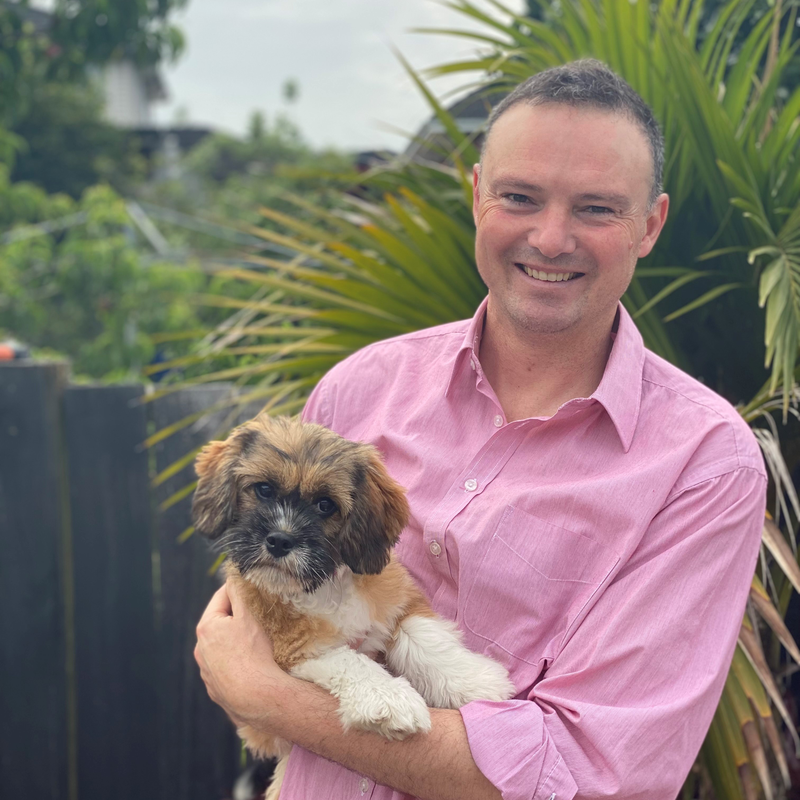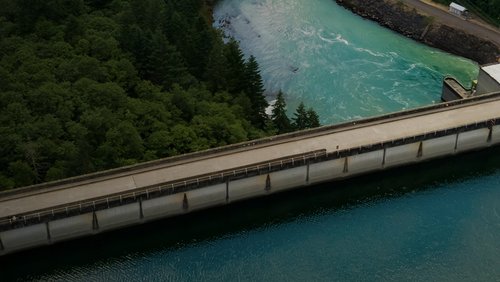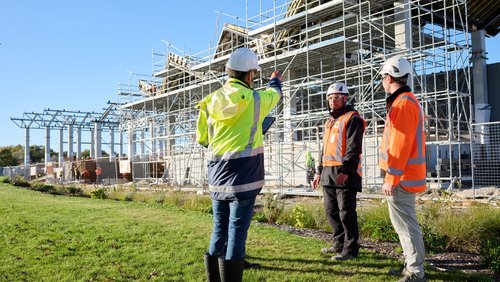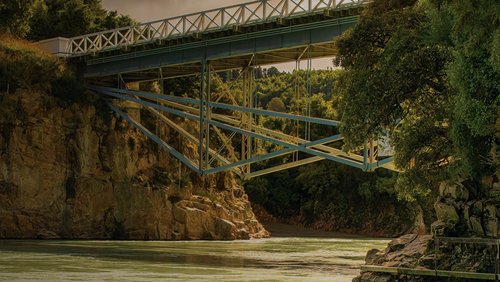10 Jun 2022
We caught up with Matt Watson, Professor in the Department of Chemical and Process Engineering (CAPE) in the Faculty of Engineering at the University of Canterbury.
What is your role at the University of Canterbury?
I'm a Professor in the Department of Chemical and Process Engineering (CAPE) in the Faculty of Engineering. I’m also the director of the University of Canterbury-hosted Biomolecular Interaction Centre (BIC), a multi-disciplinary research centre dedicated to the study of biologically derived molecules. I also have a small ownership stake in two start-up companies Nilo andAspiring Materials.
What is your favourite part of the role?
There's a lot of scope to pursue your academic passions in both teaching and research. There's a broad willingness of the University of Canterbury staff to collaborate both internally, externally with other universities and research centres, and with industrial clients. It has been great to see the recent establishment of start-up companies as a result of some innovative research centred at University of Canterbury. Recent examples include Zincovery from CAPE, Precision Chromatography from BIC, and Aspiring Materials from Civil engineering and CAPE.
Most of my research is related to the tricky problem of removing fossil fuels from heavy industry. In the case of iron, this can be done by replacing carbon with hydrogen, which is produced using renewably generated electricity. For some metals, like aluminium, electrolysis can be used instead. The issue is then replacing the carbon anode (which produces CO2) with a stable, non-carbon anode. My research is also looking at producing maple and birch syrup in New Zealand.
Who or what inspired you to enter the wonderful world of engineering?
My Dad (Ivor Watson) and Uncle (Brian Earl) were the first two engineers to earn their PhDs from CAPE at University of Canterbury. So as a child, I was surrounded by chemical engineers, and was always fascinated by their conversations and they were always on tap to explain stuff to me.
How do you incorporate Te Ao Māori into your engineering teaching at the University of Canterbury?
In the first year the students are introduced to Bicultural Confidence and Competence (one of the UC graduate attributes) through a panel discussion with practising engineers, as well as lectures and assessment on Te Ao Māori. After the first year each discipline is a little different. In CAPE, it's covered and assessed primarily in the 3rd and 4th year design classes through a mixture of lectures, invited speaker seminars and project team work. Immersive learning, like marae visits, have been put on hold due to COVID-19.
Why do you think it's important for student engineers to have a broad understanding of engineering outside their specialist discipline?
Teamwork, teamwork, teamwork! Most real engineering problems are large, constrained, ill-defined, highly non-linear multivariable optimisations. In plain English that means that they’re too hard to be solved by any one individual, and require many engineers from different disciplines to come to a solution. I'd go further to say that the team should involve input from non-engineers, especially from the arts and social sciences.
What are three tips you would give students who may be having problems understanding a particular engineering concept?
- Discuss the concept with your peers, lecturer, teaching assistant. You don’t have to struggle on your own, and you’ll find when you graduate that engineering is a team sport.
- Try to break the concept down into simpler components that you already understand. This might involve reading a text-book or looking online.
- Try and relate the concept to something that you’re familiar with. Kicking a rugby ball into the wind to understand drag forces in ballistics, an evaporating puddle to understand vapour pressure, relating 1 million cubic metres to an track and field stadium (= 100 m x 100 m x 100 m).
Why are you a member of Engineering New Zealand?
Being able to put FEngNZ after my name invokes not only a level of leadership, knowledge, and engineering experiences, but is also a valuable endorsement of my reputation, which is upheld by the Engineering New Zealand Code of Ethical Conduct. Prior to COVID, I enjoyed the social aspect of some of the events hosted by the Canterbury Branch. I look forward to returning to in-person events soon.
What do you do in your spare time?
When the waves at Sumner are waist high or smaller, I’ll take out my longboard for a surf. I have been teaching myself fingerstyle guitar for a little over two years now, and recently played a few simple tunes so my daughters and niece could sing for their grand-parents. I enjoy woodworking in my garage, and I keep two beehives on my property in Cashmere.

Matt Watson. Image: Vanessa Brunton




